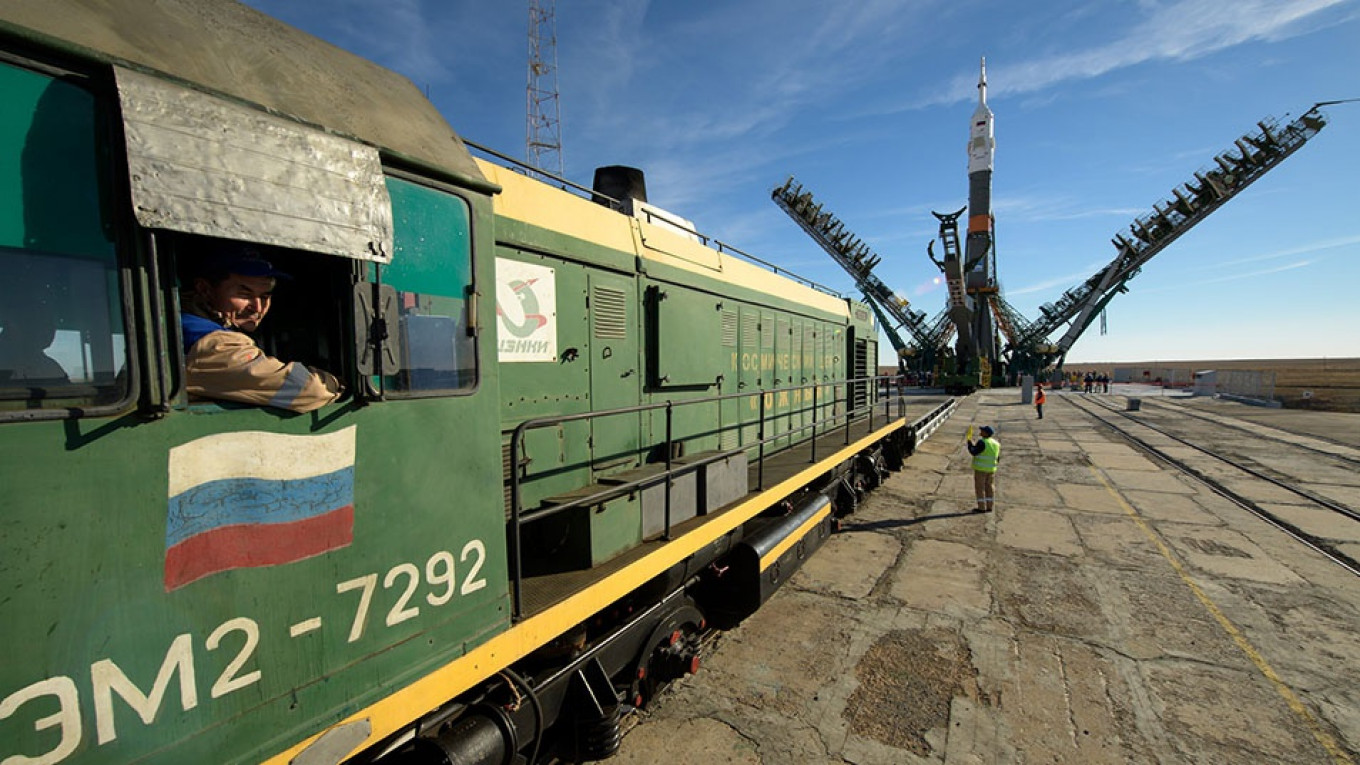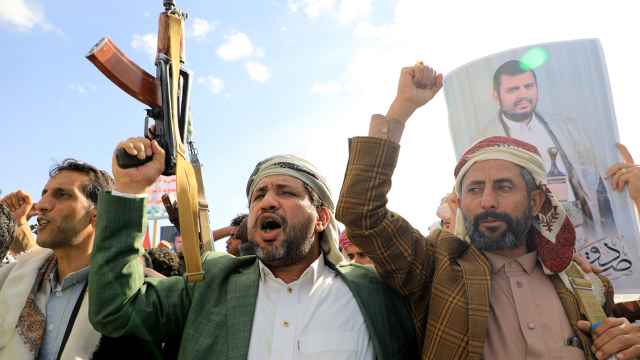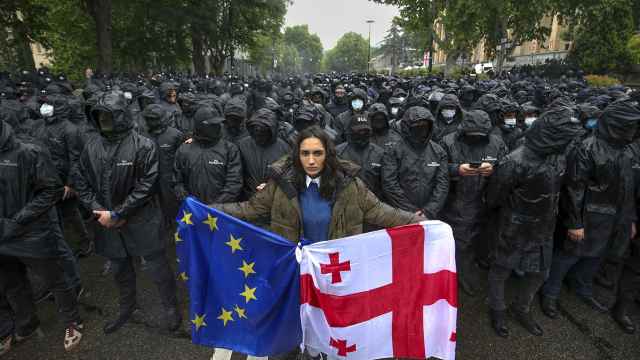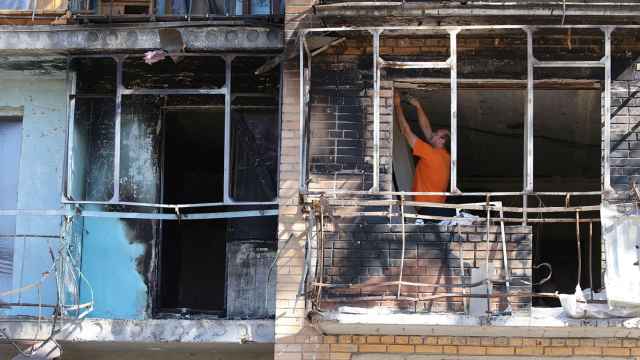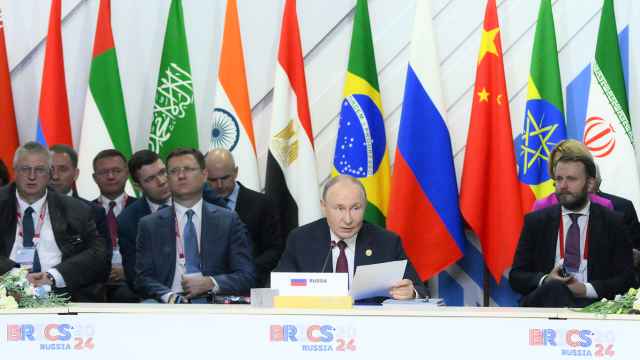The reported hole the Soyuz MS-09 spacecraft that caused an outcry last month and the emergency launch of Soyuz MS-10 this week should urge us to reconsider the state of Russia–U.S. space relations. Although this cooperation has weathered many existential crises, including the conflicts in Ukraine and Syria, the unpleasant truth is that space cooperation between Russia and the United States has been deteriorating for years now.
The lack of new joints projects since the late 2000s in combination with deepening mutual mistrust between the countries has thrown a shadow over cooperation. At the same time, Russia faces a crisis in its own space industry.
Russia is still the only U.S. partner capable of bringing its astronauts to the International Space Station, and Russian rocket engines enable the operation of the American Atlas V and Antares launch systems. Both countries, however, deal in interdependence, and Russia’s space agency, Roscosmos, is also heavily dependent on contracts from the United States.
For example, the fees from American, European and Japanese astronauts that use Soyuz spacecrafts account for almost 25 percent of the annual Roscosmos budget (the remaining 75 percent comes from the Russian government).
Nevertheless, this interdependence is not going to last forever. The ISS, which currently operates as something of an international institution, will eventually go commercial or will end operation after 2025. In the meantime, NASA will go further into space with its own Gateway lunar orbital station and other projects.
Here, Russia faces an existential dilemma. It is crucial for Moscow to continue its space partnership with the United States. After all, aside from its nuclear arsenal, this space cooperation is what allows Russia to maintain its status as a great world power.
At the same time, Russia is not in a position to offer anything of substance to American’s long-term space agenda, like it was in the early 1990s with its experience in manned space flights and its orbital stations.
Moreover, Russia’s ineffective state-owned space industry is proving to be incapable of finding ways of cooperating with figures like Jeff Bezos, Robert Bigelow, Elon Musk and others, or meeting advanced American industrial and technical standards. However, the main obstacles for further Russia–U.S. cooperation in outer space lie within the Russian political system.
This system works against the market economy and private enterprise. Its purpose is to keep the political and social hierarchy in order. It is impossible to combine space exploration and technological development with a system of governance which comes with it a high level of corruption and bloated institutions, which work to enrich the Kremlin’s inner circle. All the same, this is what Moscow is trying to do.
In the past, Russia had issues with its launch vehicles, satellites and scientific missions. The space manufacturing industry was incurring huge financial losses. The establishment of Roscosmos in 2015, into which almost all of the space industry was incorporated, was an effort to reconcile these problems.
But Roscomos has struggled to be effective in the absence of close competitors and in an environment where the government is willing to throw billions of dollars at it, just so Russia can maintain its status as world power. A number of contradictory regulatory laws and the fact that the FSB is perpetually looking for foreign agents in the industry has only worked to impede an industry already mired in problems.
The recent problems with the Soyuz spacecrafts are ultimately just a distraction from these existential problems. And the question that arises is whether or not Roscosmos will be able to solve the problems that led to them by itself, and subsequently whether or not it can prove to be a reliable partner for the United States.
The future U.S.-Russia space cooperation is dependent both on whether Russia can prove its competences and reliability, and on the status of bilateral relations more broadly. Ultimately, it is the Russian government that will determine the outcome of those questions.
Pavel Luzin, PhD. Space policy and international relations expert. The views expressed in opinion pieces do not necessarily reflect the editorial position of The Moscow Тimes.
A Message from The Moscow Times:
Dear readers,
We are facing unprecedented challenges. Russia's Prosecutor General's Office has designated The Moscow Times as an "undesirable" organization, criminalizing our work and putting our staff at risk of prosecution. This follows our earlier unjust labeling as a "foreign agent."
These actions are direct attempts to silence independent journalism in Russia. The authorities claim our work "discredits the decisions of the Russian leadership." We see things differently: we strive to provide accurate, unbiased reporting on Russia.
We, the journalists of The Moscow Times, refuse to be silenced. But to continue our work, we need your help.
Your support, no matter how small, makes a world of difference. If you can, please support us monthly starting from just $2. It's quick to set up, and every contribution makes a significant impact.
By supporting The Moscow Times, you're defending open, independent journalism in the face of repression. Thank you for standing with us.
Remind me later.



